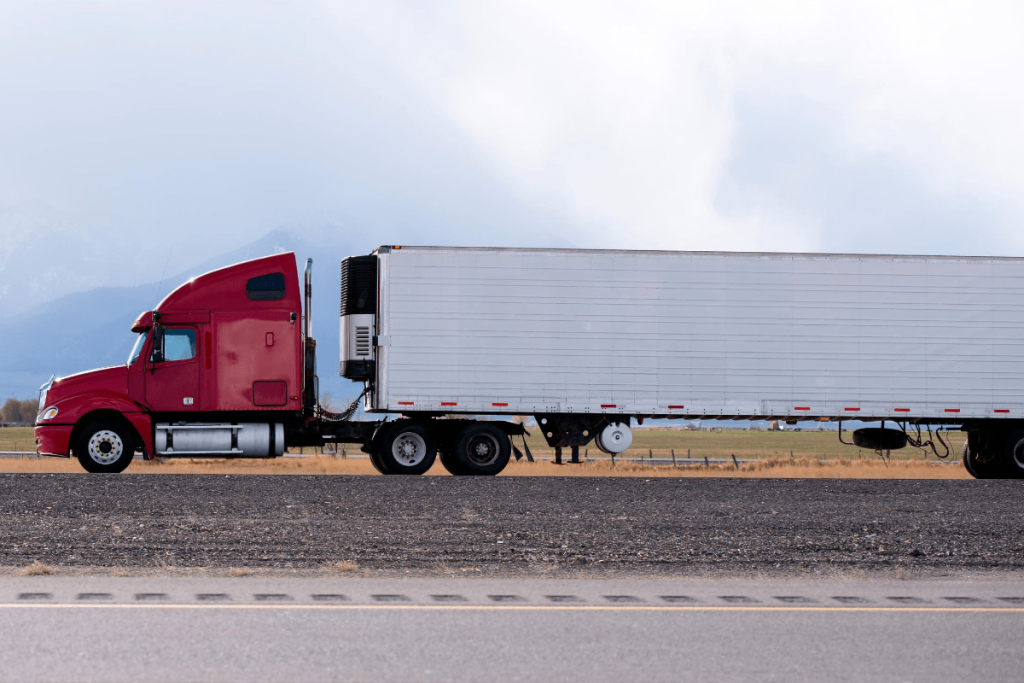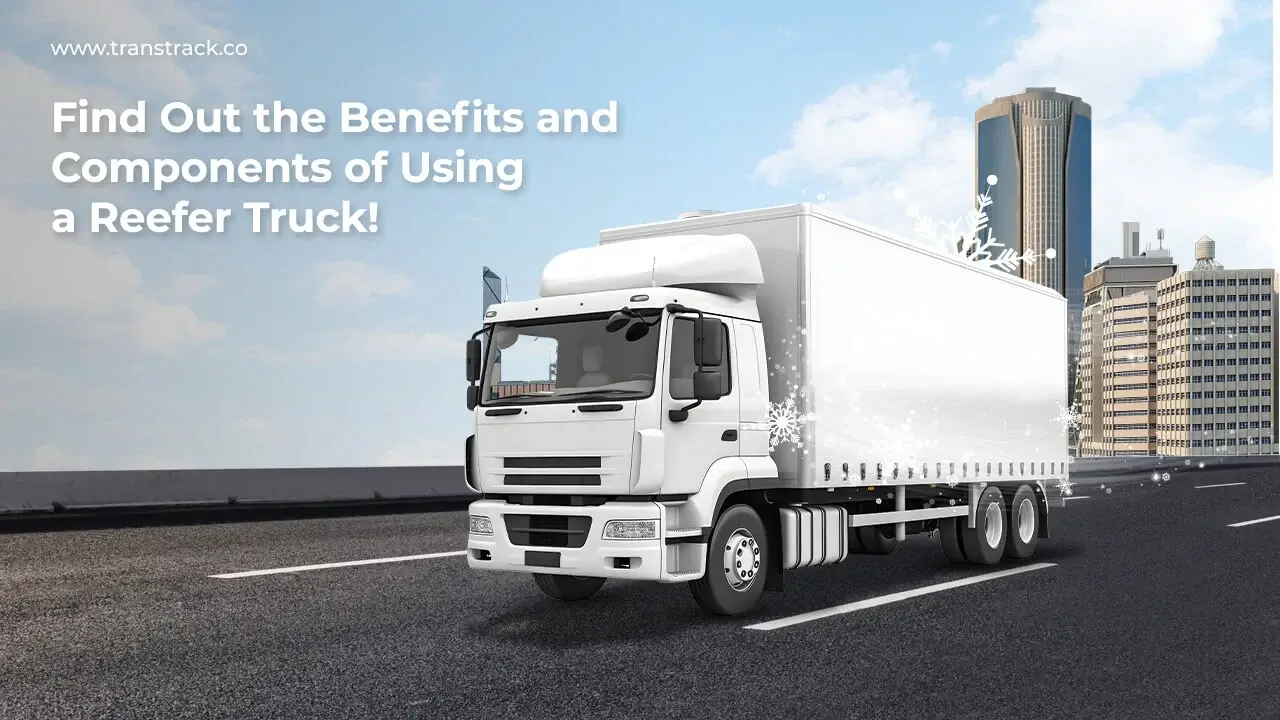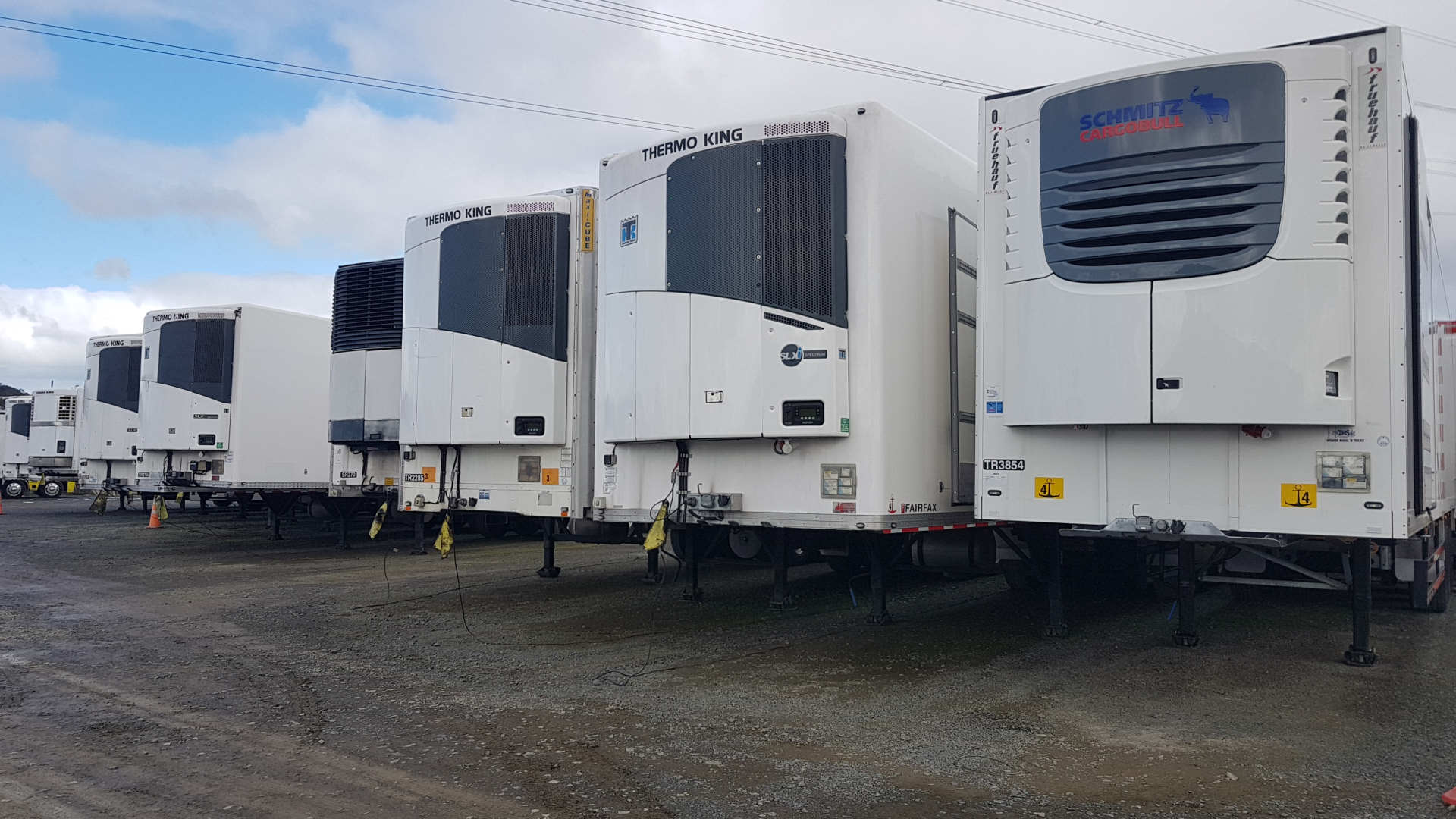Thermo King Transport Refrigeration: Quality Air Conditioning for Cargo
Thermo King Transport Refrigeration: Quality Air Conditioning for Cargo
Blog Article
Top Technologies in Transportation Refrigeration: Enhancing Performance and Safety And Security
The landscape of transportation refrigeration is going through considerable change, driven by developments targeted at improving both efficiency and safety. Secret developments such as smart temperature level tracking systems, environmentally friendly refrigerants, and automated route optimization are essential in resolving the sector's obstacles. These modern technologies not only guarantee the honesty of temperature-sensitive items however additionally add to sustainability efforts. As these innovations remain to develop, it is necessary to discover their ramifications on operational practices and governing compliance, triggering a more detailed assessment of just how they reshape the future of transportation refrigeration.
Smart Temperature Keeping An Eye On Solutions
In the world of transport refrigeration, wise temperature surveillance systems have actually arised as a critical development for guaranteeing the honesty of temperature-sensitive products. These sophisticated systems take advantage of Internet of Things (IoT) innovation to give real-time information on temperature fluctuations, allowing drivers to keep optimal problems throughout the supply chain. By constantly tracking the temperature of cooled containers and vehicles, companies can promptly recognize inconsistencies that might endanger item quality.

Furthermore, clever monitoring systems commonly include automated signals and notifications, allowing stakeholders to react quickly to any type of possible issues. This proactive method not only reduces the threat of wasting but likewise enhances compliance with governing standards governing food safety and security and pharmaceutical transportation.
The combination of data analytics within these systems likewise helps with anticipating maintenance, aiding operators to visualize prospective devices failures before they happen. This capability minimizes downtime and enhances operational efficiency, ultimately resulting in cost savings.
Eco-Friendly Refrigerants
Smart temperature tracking systems play a crucial function in maintaining product quality, but the efficiency of transport refrigeration likewise rests on the option of cooling agents utilized. As environmental issues increase, the change towards eco-friendly refrigerants has come to be essential. Typical refrigerants, such as hydrofluorocarbons (HFCs), are well-known for their high International Warming Possible (GWP), adding considerably to environment change. In contrast, emerging alternatives like hydrocarbon-based cooling agents and hydrofluoroolefins (HFOs) present lower GWP alternatives, using both performance and sustainability.
These environmentally friendly refrigerants not only minimize environmental effect however also line up with global guidelines targeted at eliminating hazardous compounds. Their adoption can lead to enhanced energy effectiveness, ultimately reducing operating expense for transportation refrigeration systems. The use of all-natural refrigerants, such as ammonia and carbon dioxide, has gained traction due to their outstanding thermodynamic residential or commercial properties and lower environmental impact.
Buying eco-friendly cooling agents is not simply a governing conformity measure; it represents a tactical choice that boosts brand name credibility and cultivates client commitment. refrigerated transportation thermo king. By focusing on sustainable practices, business can add to a greener future while ensuring the stability of delivered products
Advanced Insulation Materials
Utilizing sophisticated insulation products is essential for maximizing transportation refrigeration systems, as they significantly improve power efficiency and maintain constant temperature level control. Traditional insulation techniques usually drop brief in protecting against thermal transfer, leading to enhanced power usage and changing temperatures within refrigerated areas.
Arising products such as vacuum protected panels (VIPs) and aerogels supply premium thermal resistance, enabling thinner profiles without jeopardizing performance. VIPs, for example, make use of a vacuum layer to reduce convective and conductive heat transfer, making them optimal for space-constrained applications. Aerogels, their explanation understood for their light-weight and permeable structure, supply extraordinary insulation while substantially minimizing general system weight.
Moreover, including phase change materials (PCMs) right into insulation systems can further maintain temperature levels during transit. These materials take in and launch thermal power, properly buffering against external temperature variations.
The assimilation of these sophisticated insulation materials not only lowers the operational expenses related to energy consumption however likewise prolongs the service life of temperature-sensitive products. As the transport refrigeration industry continues to develop, the fostering of ingenious insulation modern technologies will certainly be essential in improving both performance and safety in cooled transport.
Automated Path Optimization
The efficiency of transport refrigeration systems is considerably improved via automated route optimization, which leverages sophisticated formulas and real-time information to identify the most reliable paths for delivery. By examining different aspects such as website traffic patterns, climate conditions, and delivery home windows, these systems can considerably reduce traveling time and fuel consumption.
Automated path optimization reduces human mistake and subjective decision-making, which can result in inadequacies. This modern technology makes it possible for fleet managers to allot sources better, making sure that refrigerated items keep their needed temperature throughout the trip. By optimizing courses, business can additionally enhance consumer contentment through prompt shipments.
Additionally, automated systems can adapt to unforeseen situations, such as road closures or abrupt website traffic spikes, allowing for dynamic rerouting. This versatility not only protects the stability of temperature-sensitive products yet additionally adds to total operational effectiveness.
Executing automated path optimization can result in considerable expense financial savings while lowering the carbon impact connected with transportation. As businesses increasingly focus on sustainability, this advancement attracts attention as a critical part in modern transportation refrigeration, aligning functional goals with environmental responsibility. Inevitably, automated route optimization stands for a significant improvement in the quest for effectiveness and safety and security in transportation refrigeration.

Real-Time Data Analytics
Automated course optimization significantly gain from the combination of real-time data analytics, which provides critical insights right into the efficiency of transportation refrigeration systems. By making use of real-time data, transport drivers can monitor temperature level fluctuations and equipment efficiency, ensuring that perishable items are preserved within required specifications throughout transportation. This proactive approach not just improves try this the top quality of the carried products but likewise minimizes the danger of spoilage and loss.

In addition to improving effectiveness, real-time analytics enhances safety by guaranteeing conformity with governing requirements for temperature control. This not only safeguards public health and wellness however also strengthens a firm's track record published here - thermo king transport refrigeration. As the transportation refrigeration industry develops, the assimilation of real-time information analytics emerges as a cornerstone for driving advancement, sustainability, and functional excellence
Final Thought
In conclusion, the developments in transportation refrigeration considerably boost both performance and security within the sector. Smart temperature monitoring systems and real-time information analytics provide vital oversight, while green cooling agents and advanced insulation materials add to sustainability and power effectiveness. Moreover, automated course optimization algorithms not only reduce traveling time but also minimize environmental influence. Collectively, these advancements represent a crucial advancement in transportation refrigeration, making certain conformity with regulatory requirements and promoting a greener future.
The landscape of transportation refrigeration is undertaking considerable change, driven by innovations aimed at improving both performance and security.Smart temperature surveillance systems play an important role in keeping item quality, yet the efficiency of transport refrigeration additionally hinges on the option of refrigerants used. Their adoption can lead to boosted power effectiveness, eventually decreasing operating costs for transport refrigeration systems. Inevitably, automated path optimization represents a significant innovation in the mission for efficiency and safety and security in transport refrigeration.
In final thought, the developments in transportation refrigeration considerably boost both efficiency and safety within the market.
Report this page